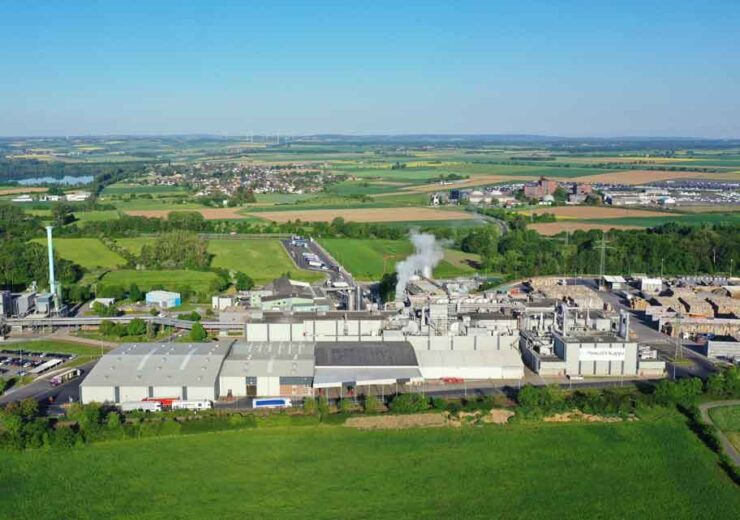The project will save 55,000 tonnes of CO2 annually and decreases CO2 emissions at the mill by more than 25%, which will result in a 2% decrease in the firm’s worldwide emissions

Smurfit Kappa invests €11.5m in sustainability project at its Zülpich paper mill to reduce the plant’s CO2 emissions. (Credit: Smurfit Kappa)
Ireland-based corrugated packaging company Smurfit Kappa has invested €11.5m in a sustainability project at its Zülpich paper mill in Germany to reduce the plant’s CO2 emissions.
As part of the investment, the plant’s multi-fuel boiler has been modified to provide a more sustainable fuel source for the production of steam and electricity.
The mill, which generates about 500,000 tonnes of paper per year, is now running on its own biogas.
The biogas is a by-product of its circular water treatment plant, and the leftover materials or so-called rejects that are produced during the paper recycling process would otherwise be regarded as waste.
According to Smurfit Kappa, the initiative saves 55,000 tonnes of CO2 annually and decreases CO2 emissions at the mill by more than 25%, which will result in a 2% decrease in the firm’s worldwide CO2 emissions.
The company aims to reduce its fossil fuel CO2 emissions by 55% by 2030 and achieve at least net-zero CO2 emissions by 2050.
Smurfit Kappa said that the Science Based Targets initiative has validated that the packaging company’s 2030 carbon reduction targets are in accordance with the Paris Agreement.
The Zülpich circular strategy creates loops with the Dutch paper mills Parenco and Roermond owned by the company in addition to its own activities.
The rejects from Parenco and Roermond are a valuable source of fuel for the boiler at Zülpich.
Smurfit Kappa Recycled Paper Cluster CEO Pim Wareman said: “The unveiling of this state-of-the-art multi-fuel boiler is yet another example of how, at Smurfit Kappa, sustainability is part of our DNA.
“The project shows that economic efficiency and sustainability are by no means mutually exclusive but can go together hand in hand taking the mill on a very positive journey.”
The Zülpich mill is now planning a number of initiatives over the upcoming months to further improve its performance in terms of sustainability.
